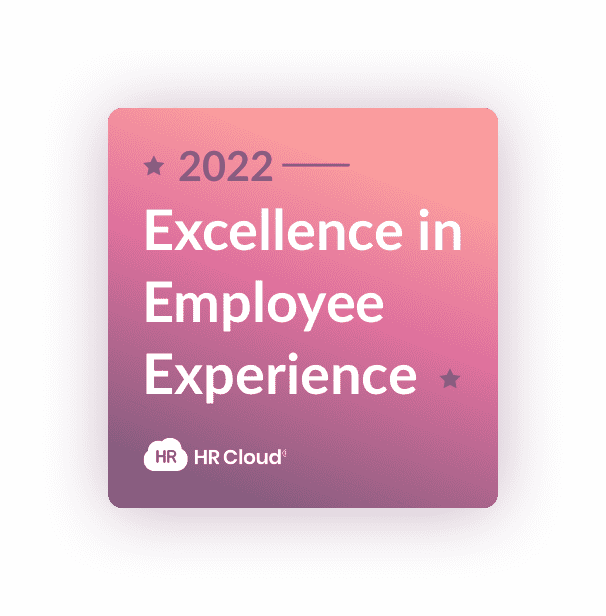5 Employee Feedback Examples and How to Use Them

“Feedback” isn’t a term that many employees want to hear from their boss at work. It sparks not-so-happy memories — uncomfortable conversations, unapproachable managers, and focusing on mistakes — not to mention sweaty palms, clenched stomachs, and rapid heartbeats. Many employees fear it rather than welcome it.
Sometimes, the same is true among company communication. Knowing how most employees perceive employee feedback, leaders feel uneasy about giving it. However, any business or organization needs to provide employee feedback to make positive changes in the work environment and business as a whole.
So, what kind of employee feedback should you use? bank
In this post, we’ll look at some examples of employee feedback and how you can use them to build a culture of welcome feedback and positive listening.
But first…
What Is Employee Feedback?
Employee feedback is communicating or giving information, whether formally or informally, to employees about their skills, behavior, and performance over a certain period. It clarifies expectations and gives employees an overview of how they are doing and how to improve.
Feedback is either reinforcing (positive employee feedback) or redirecting (constructive). It’s reinforcing when you want the person to continue with a certain positive behavior. You acknowledge the efforts, appreciate the performance, and encourage employees to keep it up. You reinforce the positive impact of their actions. On the other hand, it’s redirecting when you need to ask someone to stop doing a particular thing and start doing another. It’s a way of addressing issues by pointing out areas for improvement.
As a manager or business owner, you can provide feedback in three formats: appreciation, evaluation, and coaching.
Appreciation, the easiest type to give, encourages employees and motivates them to do even better. It also helps build psychological safety for employees, enabling them to become more vulnerable, creative, and productive at work.
An evaluation assesses an employee against a set of standards.
Coaching could be a mix of appreciation and evaluation. When you coach people, you assist them so they can expand their knowledge, enhance their skills, and level up their capabilities.
The 40 Best Thank You
Messages for Colleagues
building a positive and engaged culture at your company.

What Is the Importance of Employee Feedback?
Employee feedback can be an excellent collaboration tool to create great employee experiences. Employee feedback can boost morale and enhance performances, making employees more engaged. According to the Harvard Business Review, when employees are happy, productivity increases by 31%, accuracy on tasks goes up by 19%, and sales rise by 37%.
While you can provide verbal feedback, action or change in the process or system may also serve as feedback to let employees know that you care for them. This creates a strong workplace culture and solid foundation for good employee mental health.
This is especially true when you position feedback as learning, and deliver it with respect. To draw an analogy, there’s a company called Mos that teaches young people about banking and budgeting their money. Although teens have been around money, they usually are not as good at handling it. So, it would be wrong to start out by scolding them if they make a mistake with money. Instead, Mos helps set up special bank accounts for teenagers, teaches teens how it works, and shares several best practices to avoid and fix early financial mistakes.
Similarly, managers should assume that if an employee makes a mistake, it is usually because of missing knowledge or a misunderstanding. Then review the basics of the correct process in a respectful way, clear up any misunderstandings, and help the employee change their approach so they can try again.
Overall, when you have a culture of respectful instead of simply negative feedback, you’ll gain the following:
-
Strong work culture
-
Increased employee retention.
5 Employee Feedback Examples
1. Appreciation for employee performance
If you want to appreciate employees, you can take note of their great qualities, that is, what they are particularly good at or how they have improved. You can also let them know that they are setting a good example among their peers. Similarly, you can recognize the whole group for their effective team collaboration or their support during a challenging time. For example:
I want to thank you for the fantastic job you all have been doing as we prepare for our X project. It’s wonderful to see so much progress as you work as a team.
I want you to know that I’ve seen such a remarkable change in your performance since the last time I checked on you. I appreciate how committed you are to your growth and to helping this company grow.

Thank you for leading your team well.
It has been a challenging time for all of us, with the rebranding and changes in the leadership team. I want to thank you for doing your best to stay on top of all of your work while accommodating extra requests.
I’m proud of the way you handled the situation. You did a good job!
X is one of your greatest strengths. I’m always confident in giving you this kind of work because I know I can count on you. Keep up the good work!
I love the “getting to know you” activities that you planned for the group last time. They were really engaging, and you certainly thought about everyone’s preferences in the arrangements you made.
2. Guidance to help employees find a better approach
Guidance, or redirecting feedback, can be done in a coaching manner. You can use this style of feedback to help an employee make changes in their work if you see them struggling.
Do you have a moment to catch up? I’d like to give feedback regarding how project X is going.
Congratulations on finishing that task! It went well, but it can still be improved. What do you think we can do to make it better?
Is now a good time for us to debrief on X?
I’d like to talk about how you reacted to X at our meeting. I understand you feel strongly about the new system, but it’s essential for our growth as a team. We should collaborate as a team and help one another. Could you share some ideas on what we could do to avoid this happening again?
3. Highlighting things that need improvement
As a manager, you want a certain situation or someone’s performance to improve. Giving feedback on things that need improvement, such as communication, skill, or quality of work, certainly helps. Always be clear on your expectations for the employee roles and responsibilities.
I appreciate your commitment to the X project, but it might be good to check in with your team members to know whether they need help with their tasks or if we should extend their deadlines.
Do you have a moment to talk about your team? You’ve been doing a great job about X, but the rest of your team is falling behind. I’d like you to step up your leadership, starting with developing an effective training program to improve the skill level of everyone on your team when it comes to doing X.?
Earlier this year, you agreed to outline a process for better internal company communication, but it has been months now with no results. I think this project has overwhelmed you because you don’t have as much project management experience as we thought. So, I would like to partner you with Josh who can coach you through managing a project like this.
I found some great courses that might help you with XYZ — I’ll send you the details. Would you take a look and let me know if you’d be interested in any of them? I think this would be helpful and keep you meeting company expectations.
This is not easy for me to say, but I think it would help if you work on XYZ. Polishing this skill could take you to the next level of your career.
This is a difficult topic, but I’ve noticed that you’ve been losing focus on your work lately. I know you can do excellent work, so this tells me something isn’t right. Is there anything that you need help with? How can I be of assistance to you?
4. Addressing failure to meet goals, priorities, and deadlines
I’d like to discuss your priorities. I have noticed that while you’re doing great on project X, Y is lagging. Is there a particular issue you're facing? While I appreciate how hard you work on project X, we need to prioritize project Y this month. Do you need help with it?
I’d like to talk to you about our team performance last quarter. We’ve set a goal, but we’ve only reached X%, and the reason is you’ve fallen behind. It’s important for you as well as the team to improve. What support do you need to reach our goal moving forward?
I’ve noticed that you didn’t meet your deadlines last week. I understand that it can be challenging to work on multiple tasks, but it’s important that you let me know in advance. That way, I can adjust priorities, shift some of the work, and manage expectations. If I had known about your timing last week, I could have arranged for X to be done another way, and we wouldn’t be in this stressful situation now.
“Our hiring managers now have a reliable system that is easy to navigate. Our HR team can actively monitor the process, and assist if needed, but Onboard has helped them save so much valuable time and effort while increasing data accuracy. All of this has helped us improve compliance and gives us a powerful tool to achieve even more results in the future.”

5. Calling out unprofessional attitude or problematic behavior
I believe that we’re all free to express our opinion, but it’s important to be careful how we say it. Next time, it would be great to consider having a more collaborative tone and not sounding so angry at your co-workers. Yelling like that is never acceptable in the office.
Should we discuss what happened earlier? I understand that you may be frustrated with X, but it’s also important to maintain a safe, professional environment all the time.
This is a difficult conversation, but we really need to talk about how your recent behavior impacted the team. Your impatience, the way you take everything personally even when it has nothing to do with you, and the way you stomped out of the room and slammed the door, are very upsetting to the others, who want to work without all that drama.
Summing Up
A culture of feedback is crucial to creating a positive work experience. It builds trust between the management and the employees. When done properly, effective employee feedback offers many benefits to the business.
As a manager or business owner, you’re in the best position to know your employees and see what feedback they need. We have just provided you with a list of employee feedback examples you can use in your performance reviews or one-on-one feedback time with employees. You can adjust the language of these examples to something that feels natural for you and the employees, but the point is to be specific, clear, and direct.
The key is to receive feedback and implement it to make your employees better and more satisfied in their jobs. And once they improve, share positive feedback with them to show your appreciation for their extra effort.
If you have any other effective feedback examples you would like to share, let us know. We’ll be more than happy to update our list.
About Author:
This article is written by our marketing team at HR Cloud. HR Cloud is dedicated to providing powerful solutions for your HR teams and creating an exceptional employee experience. Our aim is to help your company improve employee engagement, onboarding, and to save you valuable time!

The HR Cloud Award
for Excellence in Employee Experience
Participation is free and winners receive:
- A $25 Amazon Gift Card
- Feature on the HR Cloud website and social media
- Digital badge + certificate to share on your website recruitment materials
Keep Reading
Balancing Technology and the Human Touch in Employee Engagement
Companies are taking employee engagement very seriously because it is one of the ways of
Building Strong Teams: The Power of Team Bonding Exercises
Never overestimate the power of collaboration as a core element of effective team
